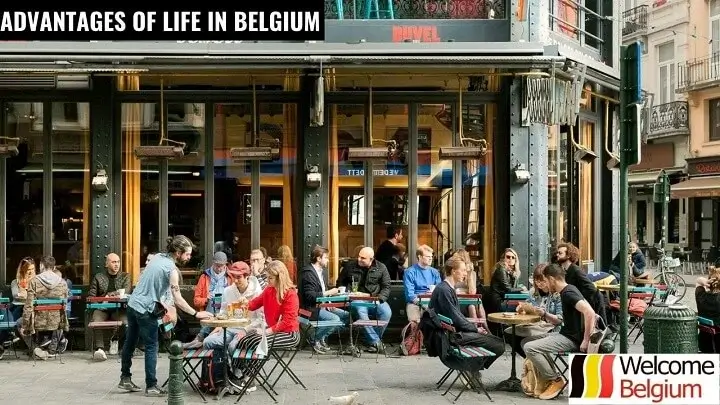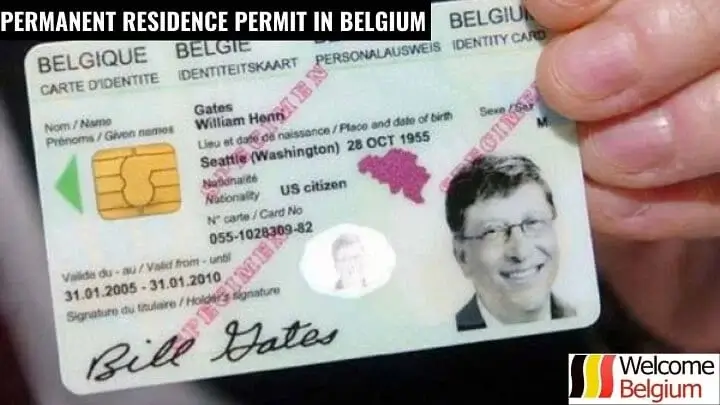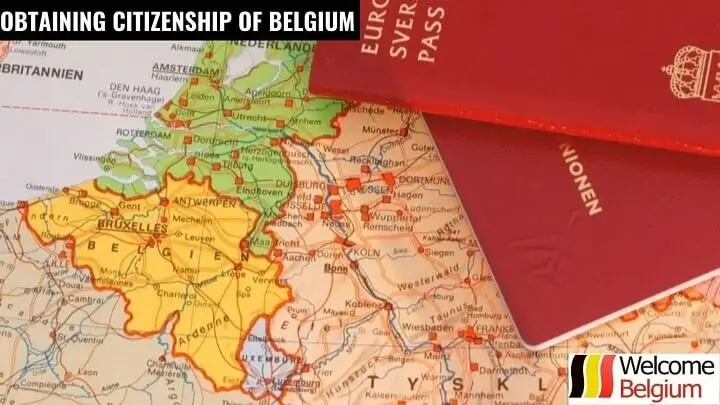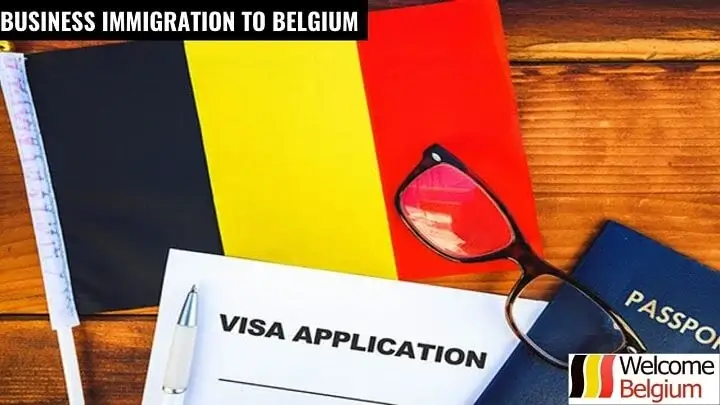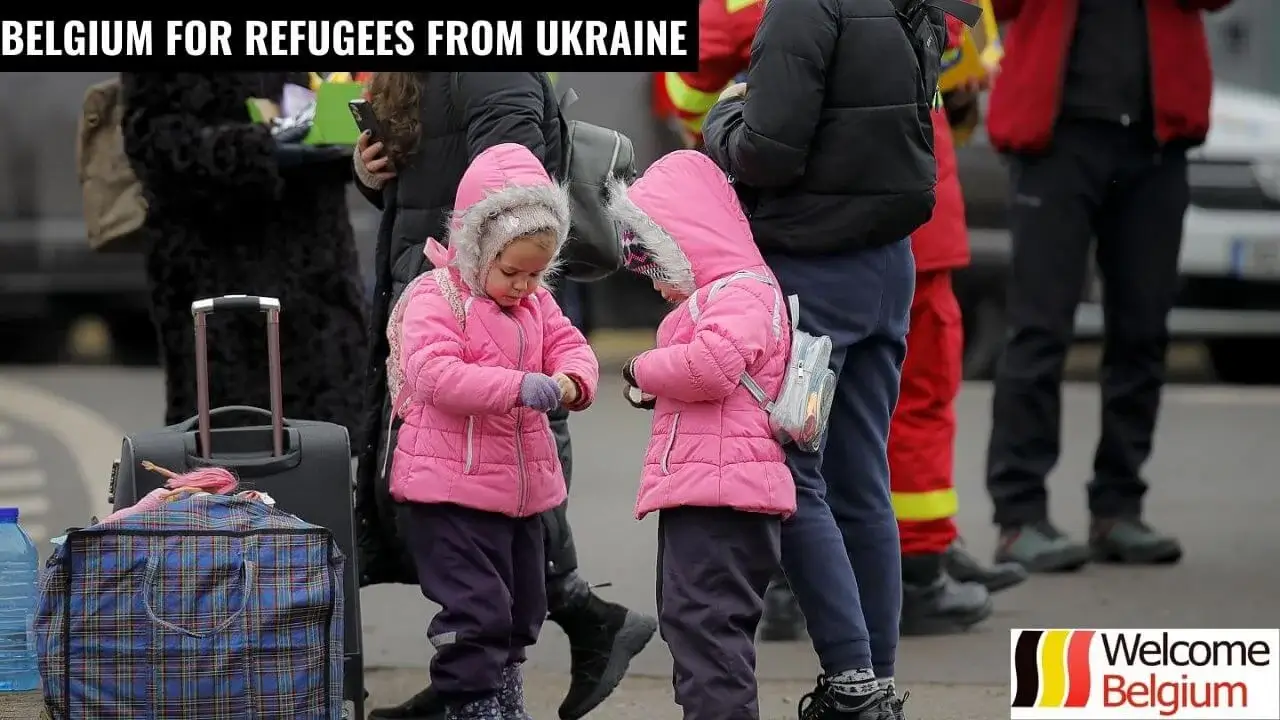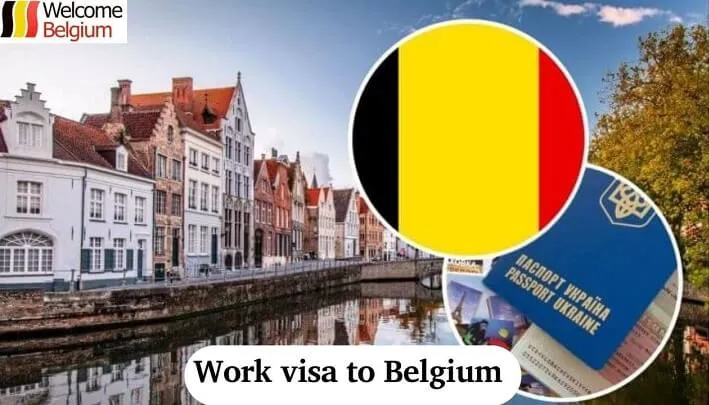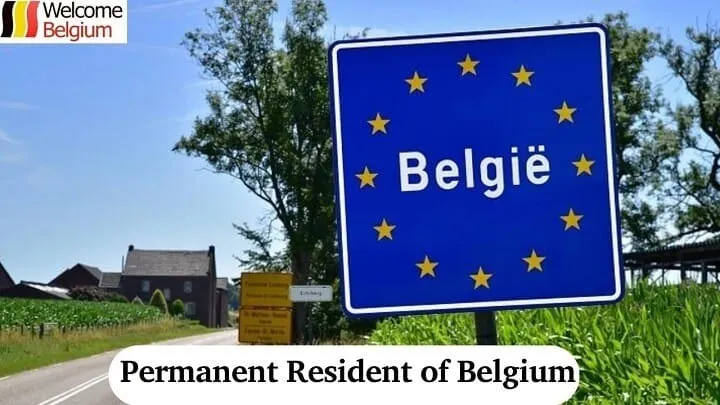When picking a country for permanent residence among EU nations, Belgium often comes up. It’s a kingdom with a stable economy, friendly laws, and good living conditions. But before you move, you need to check out the rules for getting temporary or permanent residence permits and the documents required.
Why live in Belgium?
Belgium is a place many dreams of moving to for a comfortable life and fresh opportunities. It’s not just about beautiful places and convenience — there are solid reasons to stick around: a stable economy, solid infrastructure, and real care for people. If you’re thinking about moving here, check these top reasons.
First off, infrastructure is on point: modern schools and universities, accessible healthcare, and transport is smooth — it’s super easy to get to other European countries from Belgium. This is a huge plus if you value comfort and quick travel.
Second, the language mix is awesome. Belgium has three official languages — French, Dutch, and German — plus English works well in business and education. This mix helps newcomers settle in fast and find work.
Third, the economy is solid, and jobs are available — especially in IT, engineering, finance, and services. The laws make it straightforward for immigrants to get work permits and residence status. That’s key if you plan to stay long-term.
FUN FACT: IN BRUSSELS, ALMOST EVERYONE SPEAKS THREE LANGUAGES, SO MOVING TO BELGIUM IS A GREAT CHANCE TO BECOME A POLYGLOT WITHOUT EVEN HAVING TO ATTEND A LANGUAGE SCHOOL!
Also, the social system supports families, students, and seniors — with help and adaptation programs. Cities are safe, and corruption is almost non-existent, which many people appreciate.
Living in Belgium means being in the heart of Europe, with an easy lifestyle and plenty of opportunities. If you like the idea of immigrating here, keep these benefits in mind — they really make life smoother.
How Belgium stacks up against neighboring countries:
| Criterion | Belgium | Germany | France | Poland |
| Living standard | High | Very high | High | Medium |
| Housing prices | Lower than Germany and France | Medium | High | Low |
| Healthcare | Partly paid, reliable | Insurance-based, quality | Insurance-based, bureaucratic | State-run, often free |
| Languages | French, Dutch, German | German | French | Polish |
| Bureaucracy | Present but manageable | High | Strict and confusing | Medium |
| Immigrant support | Lots of programs | Good, but tough requirements | Present but slower adaptation | Fast procedures |
| Location | Central Europe | Central Europe | Western Europe | Eastern Europe |
| Job market | Stable openings | Large market | Harder without language | Many low-skilled jobs |
| Integration | Language courses, government help | Varies by region | Harder to adapt | Easy integration |
Let’s be real — living in Belgium is just comfortable. Infrastructure works, transport is reliable, food tastes good, and safety is solid. Plus, people here are chill. Everyone minds their own business, and that’s sometimes a blessing.
Thinking about moving? Check out all the immigration details for the Flemish Region here.
To wrap up, Belgium’s living conditions fit those who want comfort and new prospects. Moving here opens doors to decent jobs, good housing, healthcare, and the chance to feel right in the middle of Europe.
Types of Immigration to Belgium
To enter Belgium, you need to get a visa that allows you to stay up to 90 days. For a long-term tourist visa (Type D), you must have travel medical insurance, proof of sufficient funds (bank statement), and hotel or accommodation booking. Visas Type C or A are not suitable for immigration. Type C allows stays in the country’s colonies, while Type A is a transit visa for airports only.
Temporary Residence Permit
Planning to stay in Belgium for more than 90 days? Then you will need a temporary residence permit — an official status that lets you live and work legally in the country. Immigration to Belgium starts here, because a tourist visa only lasts up to three months, and longer stays require other documents.
To get a temporary residence permit, you first need to obtain a Type D visa — this visa allows you to live and work legally in Belgium. It confirms your right to stay in the country for more than three months and to start the resident permit process.
The temporary residence permit gives access to healthcare, the right to work and study officially, and allows you to use Belgium’s social services. You can look for housing and plan your next steps, like applying for a permanent residence permit.
Not sure how to immigrate to Wallonia? Details here.
There are different categories of temporary residence permits depending on your purpose: for workers, students, self-employed people, or family reunification. When applying, you’ll need to provide proof of financial stability, medical insurance, and a work permit if you plan to work.
Steps to get a temporary residence permit in Belgium:
- Define your purpose of stay
- Choose your permit category: work, study, family reunification, entrepreneurship, etc.
- Each category has specific documents and requirements.
- Get a Type D visa (national visa)
- Apply at the Belgian embassy or consulate in your home country.
- Submit your application with documents (passport, photo, proof of purpose, financial guarantee, insurance).
- Wait for the decision (usually 2–4 weeks).
- The Type D visa allows entry and stay over 90 days.
- Enter Belgium
- Cross the border with a valid Type D visa.
- Your entry should match your stated purpose.
- Register at the municipality (Commune/Gemeente)
- Within 8 days of arrival, visit the local authority where you live.
- Register in the population register (registre de population or bevolkingsregister).
- Provide a rental contract or proof of accommodation.
- Receive your temporary residence card (Card B)
- After registration, the municipality issues a residence card valid for 1 year.
- The card confirms your legal status and rights to work or study (depending on your permit type).
- Get health insurance
- Register with a Belgian health insurance fund (mutuelle/mutualité).
- Insurance grants access to healthcare and reduces medical costs.
- Extend your temporary residence permit
- Apply for renewal 2–3 months before expiry.
- Confirm your purpose of stay is unchanged and conditions met (job, study, housing, insurance).
- Renewals are usually granted for one year.
- Maintain your status and fulfill obligations
- Keep your registration information updated.
- Follow immigration rules to avoid losing your status.
- Watch document expiry dates.
The process starts with submitting documents to the Belgian embassy or consulate, then registering locally after arrival. Temporary residence permits usually last one year with renewal options.
Immigration with a temporary permit requires translated and certified documents in one of Belgium’s official languages — French, Dutch, or German. Double-check everything to avoid rejection.
Fun fact: a temporary residence permit lets you travel freely within the Schengen zone if you have a valid passport.
Permanent Residence Permit
The permanent residence permit is the next step after a temporary permit. It grants more rights and stability, allowing you to live and work in Belgium without time limits or much bureaucracy. Typically, you can apply after 5 years of legal residence, but there are exceptions.
Steps to get a permanent residence permit:
- Live legally in Belgium for at least 5 years
Stay continuously on a temporary residence permit (Card B, D, or equivalent) for at least 5 years. Breaks should not exceed 6 months per year.
Documents: passport, temporary residence permit. - Prepare your documents
Gather all necessary papers:- Passport
- Proof of residence registration (permit or municipality registration)
- Proof of income (work contract, tax returns)
- Health insurance
- Police clearance certificates from Belgium and your home country (if required)
- Additional documents if regionally required.
- Submit your application
Apply in person at your local municipality or immigration office with the completed form and documents. - Application review
Authorities verify your residence, income, and criminal record. They may request extra documents or an interview. - Decision and card issuance
If approved, you get a permanent residence card valid for 10 years, renewable. This card grants almost all rights of a permanent resident except voting rights. - Maintain your status
Keep your registration current and obey residence rules. For renewal every 5–10 years, confirm your residence and avoid long absences.
To get a permanent permit, you must meet living conditions — stable income, housing, and obey immigration laws. The application is made locally, where they check your integration.
Permanent residence is issued as Card A, allowing unrestricted living and working. Usually, you need 5 years on Card B first. Card B is temporary and lasts 1–5 years depending on your stay reason (work, study, family).
Moving to Brussels region? Read about all the steps here.
New arrivals get Card D — a long-term visa to enter and start the residence permit process. Card D leads to Card B.
To move from Card B to Card A, you must prove legal residence, work, stable income, and no law violations. Card A offers more rights and less bureaucracy.
| Parameter | Card D | Card B | Card A |
| Type | Long-term entry visa | Temporary residence permit | Permanent residence permit |
| Validity | Usually up to 90 days (visa) | 1–5 years | Unlimited (usually 5 years, renewable) |
| Basis | Initial entry permit | Work, study, family, etc. | Permanent residence (5 years) |
| Work permit | No | Yes, with permission | Yes, unrestricted |
| Renewal | No | Yes, multiple renewals possible | Yes, unlimited renewals |
| Requirements | Proof of visit purpose | Registration, work, study, income | 5 years legal residence, stable income |
| Rights | Entry and residence permit | Live and work in Belgium | Full rights to live and work |
| Citizenship eligibility | No | No | Yes, after some time |
Knowing one of the official languages (French, Dutch, or German) is critical. Access to education and healthcare, plus regular tax payments, are important when applying.
Note: Card D is your first step to Belgium — without it, you can’t start.
Permanent residence grants better social benefits, work conditions, and fewer bureaucratic hurdles for citizenship applications. It’s a good choice if you want to stay long-term.
Obtaining Belgian Citizenship
Gaining Belgian citizenship offers benefits like visa-free travel to 184 countries, social support, and guaranteed pensions. However, immigrants must prove loyalty by paying taxes, running businesses, and obeying the law.
Steps to apply for Belgian citizenship:
- Prepare your application
- Ensure you’ve legally lived in Belgium for at least 5 years (usually with a residence permit).
- Start learning one official language (French, Dutch, or German) to communicate and understand the culture.
- Collect documents proving your stay, work, study, and tax payments.
- Gather documents
- Passport or ID
- Temporary or permanent residence permit
- Proof of residence registration (municipality certificates)
- Language certificates (courses or exams)
- Proof of income, taxes, and employment
- Proof of social integration (participation in local courses or social programs)
- Police clearance certificates from Belgium and your home country
- Submit your application
- Apply at your municipality.
- Pay the government fee (amount varies).
- Complete all forms and questionnaires.
- Application review
- Takes several months to a year.
- Authorities check language skills, residency, and criminal records.
- Additional interviews or documents may be requested.
- Decision
- You get an official letter approving or denying citizenship.
- If denied, reasons and next steps will be explained.
- Oath ceremony
- If approved, you attend a formal ceremony pledging loyalty to Belgium.
- This is mandatory for citizenship to take effect.
- Registration
- Your details enter official records.
- You receive a Belgian passport and ID card.
- Additional advice
- Keep track of deadlines and documents.
- Stay in contact with local authorities.
- Continue integrating into the community — participation helps.
Citizenship is a key step for full integration and enjoying rights and responsibilities. Living in Belgium opens the path after several years of compliance with rules. The main routes to citizenship are naturalization and citizenship by descent. Naturalization is more relevant for immigrants.
Typically, you must live legally in Belgium for 5 years to apply. During this time, show integration by language skills, employment or study, and tax payments. Obeying laws and avoiding serious legal problems is essential. Citizenship grants voting rights, free movement and residence across Europe, and the ability to work in government jobs.
Important: Relinquishing your original citizenship is not always required, as Belgium allows dual nationality.
Business Immigration
If you want to invest and develop a business in Belgium, there are several options — for example, setting up an SPRL company or registering a non-profit organization (ASBL). These structures suit entrepreneurs looking to invest in the economy and gain the right to live and work in the country.
Table: SPRL vs ASBL
| Parameter | SPRL (commercial company) | ASBL (non-profit organization) |
| Number of founders | 1 or 2 | at least 3 |
| Notarization | required | not required |
| Minimum capital | 18,550 euros | none |
| Legal address | mandatory | mandatory |
| Founders’ liability | limited to contribution | none (non-profit) |
| Main purpose | commercial activity | social, educational, charitable projects |
| Activity control | minimal, according to statutes | strict, by local authorities |
| Founder requirements | business experience, no criminal record | no criminal record |
| Residence permit eligibility | yes, via business immigration | yes, if actively working on the project |
Steps of Business Immigration:
- Choose a business form
Decide whether you want to open an SPRL (commercial company) or an ASBL (non-profit). - Prepare documents
Gather documents: statutes, proof of capital (for SPRL), founder information, plans, and proof of experience. - Register the company/organization
SPRL requires notarization with statutes and capital; ASBL registers without capital and notary but needs at least 3 founders. - Open a bank account
SPRL must deposit the starting capital into the company account. - Obtain a legal address
The company or organization must have an official address in Belgium. - Confirm competence and health
Founders must prove their business experience, submit health certificates, and show no criminal records. - Apply for a residence permit
Submit the application to Belgian immigration authorities with all required documents. - Wait for a decision
The process usually takes from several weeks to months.
Business immigration to Belgium is not just about investing money; it involves meeting many requirements and stages. After registration, you’ll need to confirm ongoing activity and meet conditions to maintain your residence permit. Opening an SPRL or ASBL does not guarantee automatic status — careful preparation and compliance with rules are key. When done right, business immigration opens doors to work, live, and grow in Belgium.
Note: Business immigration to Belgium does not automatically grant a residence permit.
Education Immigration
Planning to study in Belgium and stay longer than 90 days? Applying for a temporary student residence permit is the first step. This status allows you to study and legally live in Belgium during your course.
To get a residence permit on a student visa, you must be enrolled in an accredited institution — university, college, or language school. You’ll need to provide proof of tuition payment, medical insurance, and financial support for the entire period.
Popular fields in Belgium include engineering, business, medicine, design, and IT. Notable universities are the University of Liège, Free University of Brussels, and Catholic University of Leuven — they accept international students and offer courses in English and French.
The student residence permit allows part-time work — up to 20 hours per week — which helps cover housing and food expenses. Many students work in cafes, shops, or as university assistants. Seasonal jobs during holidays are also possible.
Application process:
- Admission to an educational institution
- Get official confirmation of enrollment.
- Apply for a student visa (Type D)
- Prepare documents: passport, enrollment proof, insurance, financial guarantees.
- Submit the application at the consulate or embassy.
- Enter Belgium and register
- Cross the border with your visa.
- Register at the local municipality where you will live.
- Receive the temporary residence permit
- Obtain a residence card valid for one year.
- Extend the permit if needed
- Confirm ongoing study and financial support.
After finishing your studies, you may apply for a job search permit or permanent residency if you plan to stay.
Note: Student immigration requires responsibility — follow the stay conditions, respect work hour limits, and renew documents on time to keep your status.
Life After Moving
Starting life in Belgium means adapting to a new culture, finding housing, getting a job, and building social connections. Understanding healthcare, education, taxes, and local rules will help you settle in faster and live confidently.
Registration in the Commune
Registering at your local commune is essential within 8 days of arrival. This confirms your legal status and gives access to social services.
You’ll need your passport, visa type D or entry permit, and proof of address like a rental contract. After registration, you get a temporary residence permit card allowing you to live, work, and study in Belgium.
This registration is necessary for health insurance, opening bank accounts, and more. Without it, settling in is very difficult.
Health Insurance
Health insurance is mandatory in Belgium. After registering at the commune, join a health insurance fund (mutuelle or mutualité) to access healthcare and reduce medical costs.
Insurance covers doctor visits, hospital stays, and medications. Without it, medical bills are much higher. Health insurance is also required for some visas and permit renewals.
To sign up, visit the chosen fund with your ID, commune registration, and sometimes income proofs. Insurance costs around 50-100 euros per month, but part of expenses is reimbursed when visiting doctors.
Maintaining health insurance is vital for residency and peace of mind.
Bank Account
Opening a bank account makes life easier — salary deposits, rent payments, bills, and more. It’s also necessary for many official procedures.
Bring your passport or ID and proof of address (rental contract or commune certificate) to the bank. Some banks require your residence permit as well.
Major banks in Belgium include ING, BNP Paribas Fortis, and KBC, offering online and mobile banking.
A bank account helps manage finances, receive transfers, and pay cashlessly. Choose a bank that suits your needs and fees.
Finding Housing
Finding a place to live is a priority. Consider location, budget, and housing type — apartment, house, or studio. Prices are higher in Brussels and Antwerp but lower in smaller cities.
Rent usually requires a contract, proof of income, and sometimes a bank guarantee. Read agreements carefully to avoid hidden fees.
Popular housing websites: Immoweb, Zimmo, Logic-Immo. Real estate agencies can help with tailored options.
Tip: Don’t delay house hunting to reduce stress and settle smoothly.
Taxes
Taxes play a major role for residents. Know which taxes you’ll pay and how to file correctly.
Main taxes for immigrants include income tax, property tax, and social security contributions. Income tax is progressive and depends on earnings. Employers withhold tax for employees; self-employed declare and pay taxes themselves.
Property tax applies to homeowners; renters usually are not responsible. Social contributions cover healthcare, pensions, and social benefits.
File tax returns on time and keep documents about income and expenses to avoid fines.
For business immigration or employment, consulting an accountant helps manage and optimize taxes.
For Refugees from Ukraine
Due to the 2022 Russian aggression, Belgium simplified refugee status procedures for Ukrainians. No visa is required to cross the border; a passport suffices. Volunteers and government programs provide support, easing the process.
How to get refugee status in Belgium for Ukrainians:
- Submit documents at the Immigration Office in Brussels (Rue Verregat, 1020 Brussels), open 8:30–16:00.
- After receiving your registration number, register at your local commune where you actually live.
- The commune issues an A-card, allowing residence in Belgium for 1 year.
- Access social protection — healthcare, financial aid, and school enrollment for children.
The commune may offer housing assistance — refugee camps or placement with Belgian families. Social services check living conditions.
Free travel for Ukrainian refugees ended June 1, 2022; public transport requires a ticket.
Moving to Belgium is complex but manageable with careful attention at every step — from visa and residence permits to registration, housing, and taxes. Proper preparation and understanding help ease adaptation and start your new life with confidence. Organizing documents and following local rules prevent problems and make the move smoother.

